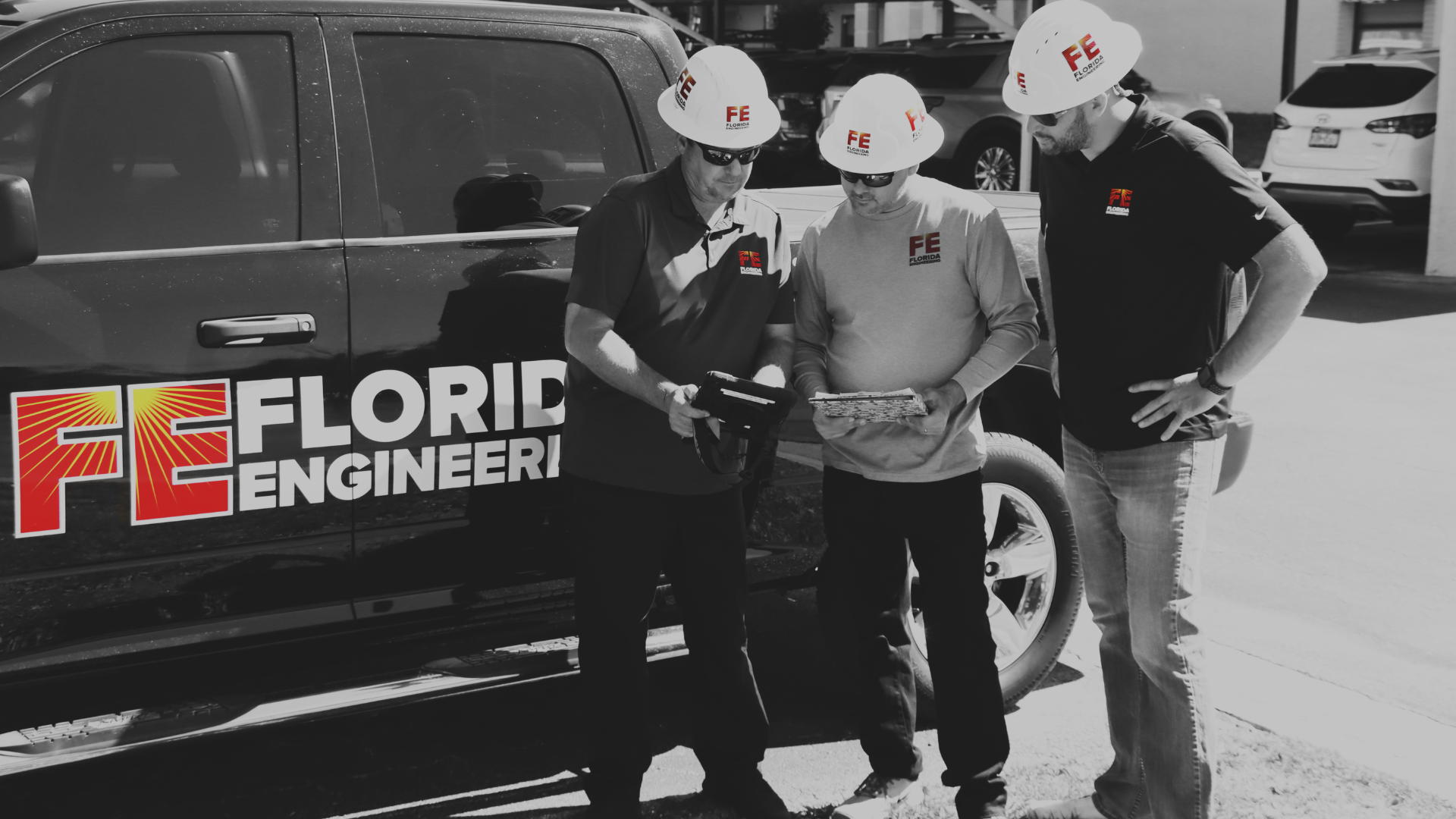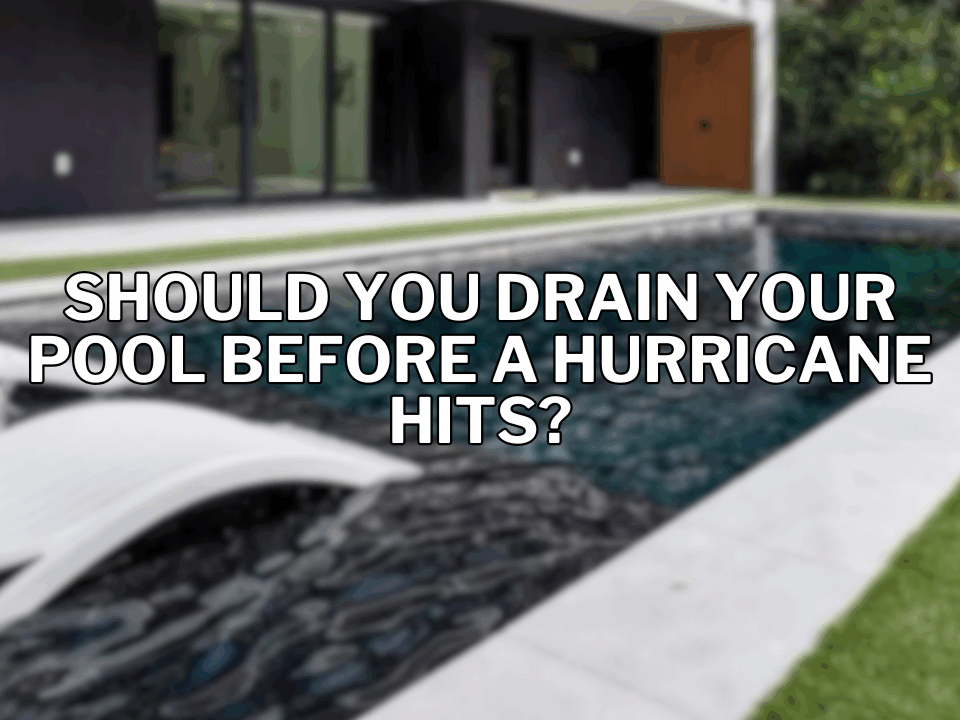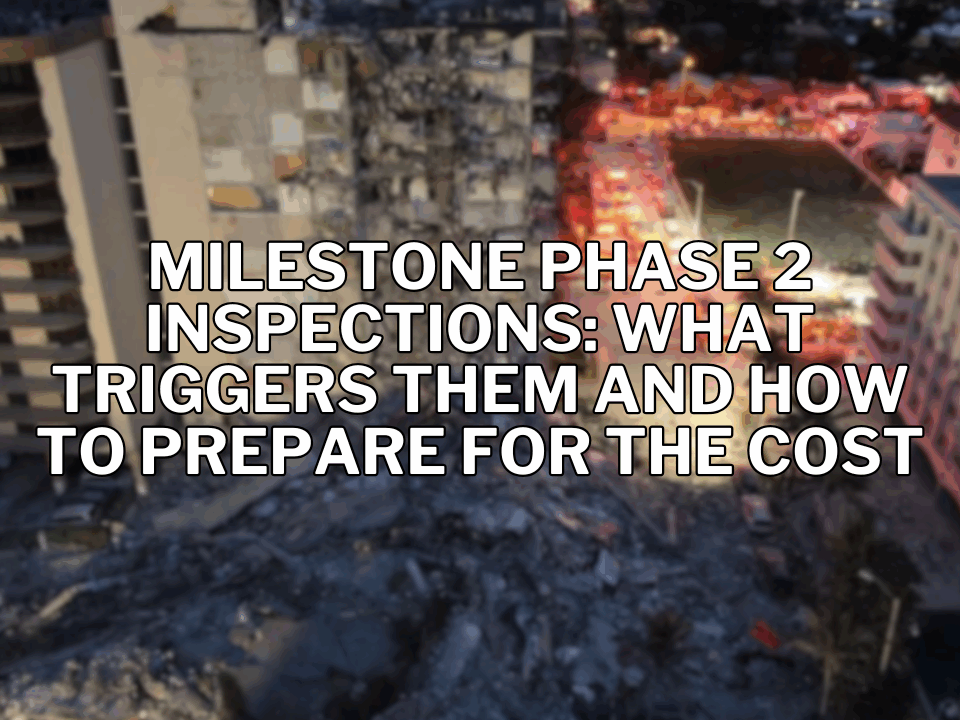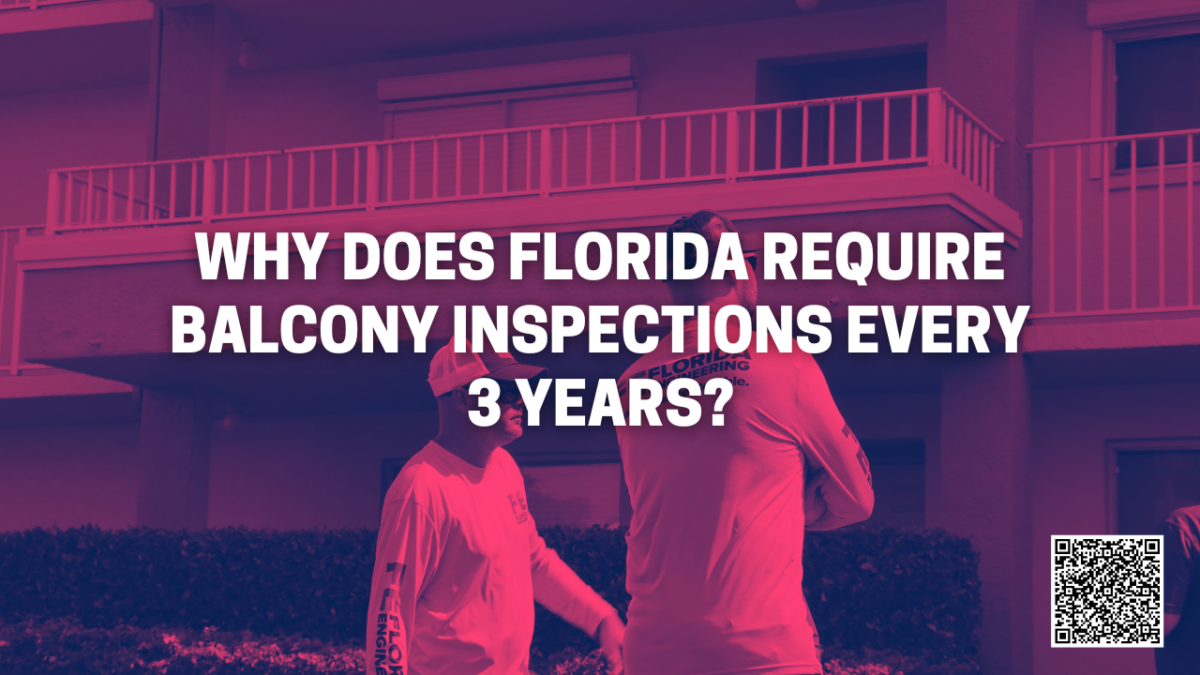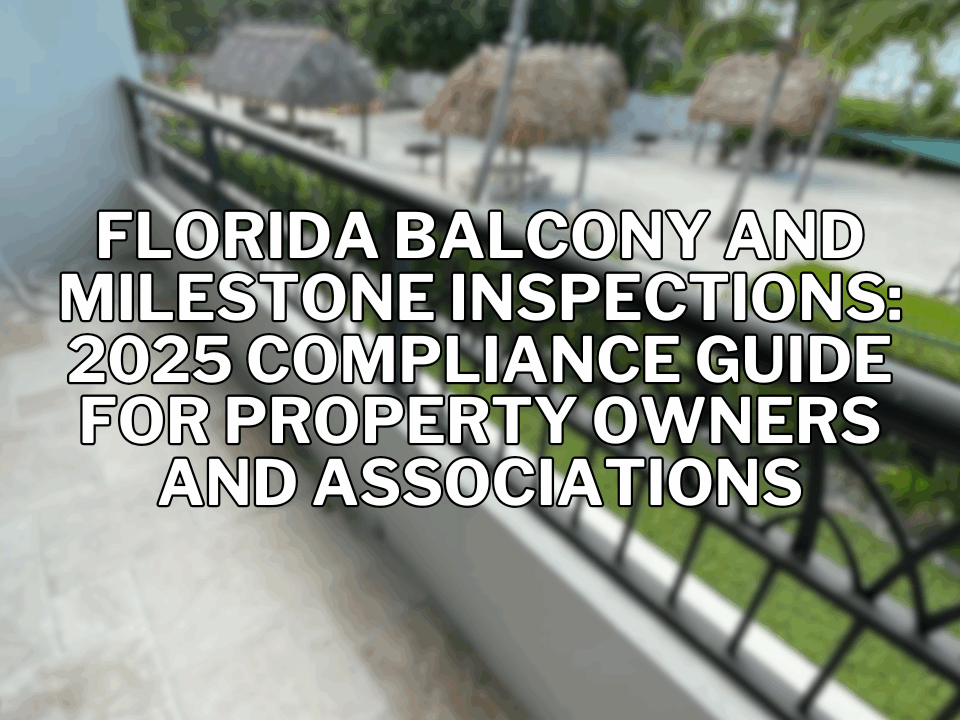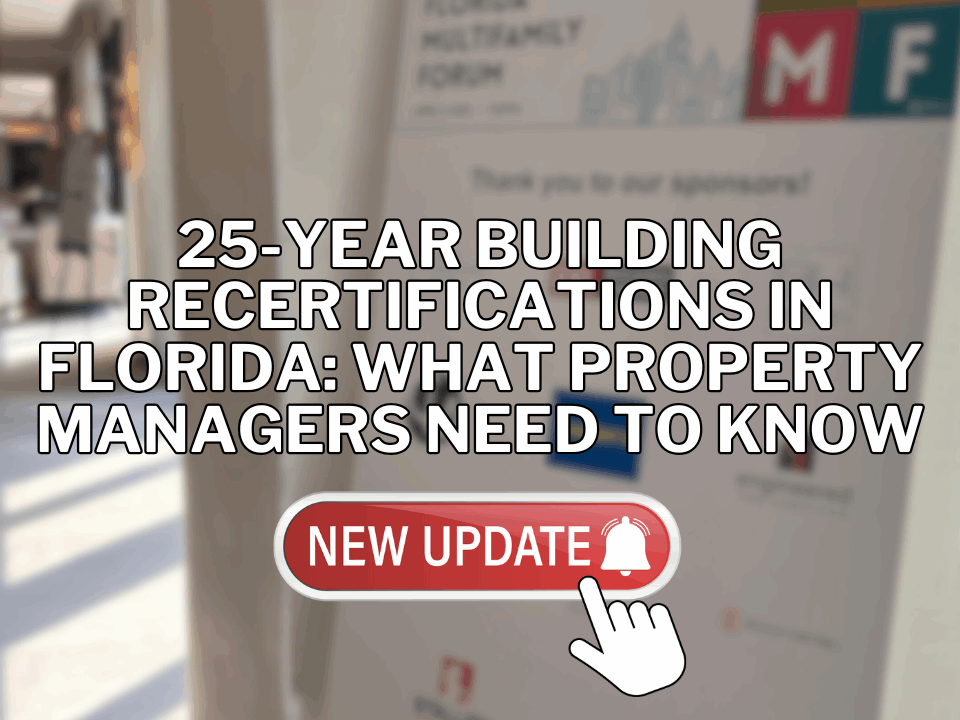In Florida, balcony inspections for buildings three stories or higher are mandated every three years. This requirement stems from the need to ensure the safety and structural integrity of balconies, which are critical components of buildings, particularly in a state known for its diverse weather conditions. The regulation is part of a broader effort to prevent accidents and ensure the longevity of building structures. This article explores the reasons behind this mandate and the benefits it brings to residents and property owners.
One of our field inspectors completing a Balcony Inspection as required by the 2023 Florida Statutes detailing the requirements for balcony inspections can be found under Title XXXIII, Chapter 509 in Marco Island.
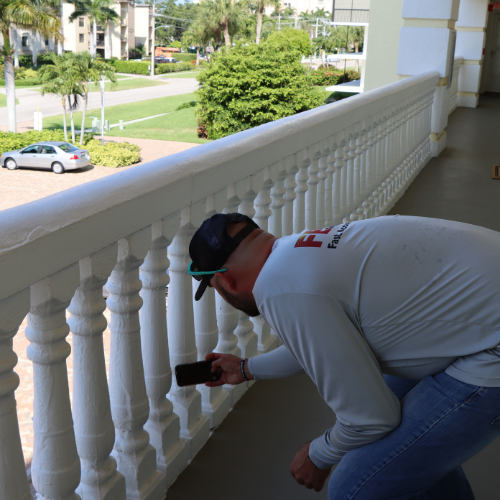
The Legislative Background
Florida’s balcony inspection requirement is governed by Florida Administrative Code Rule 61C-3.001 and Florida Statute Section 509.2112. These laws apply primarily to public lodging establishments, including hotels, motels, and vacation rentals, as well as residential buildings like condominiums and apartments that are three stories or higher. The main goal of these regulations is to ensure that balconies are regularly checked for any signs of wear and tear, structural weaknesses, or other safety issues.
Safety Concerns and Historical Context
The need for stringent balcony inspections in Florida became particularly evident after several high-profile accidents and structural failures. One significant event that underscored the importance of regular inspections was the tragic collapse of the Champlain Towers South condominium in Surfside, Florida, in June 2021. This disaster highlighted the potential dangers of neglected building maintenance and the critical need for proactive safety measures.
Detailed Inspection Requirements
During a balcony inspection, certified and licensed professional engineers conduct a thorough evaluation of the balcony’s structural integrity and safety. The inspection includes checking for damage, deterioration, or other issues that could compromise safety, such as:
- Balcony Railings: Ensuring that railings meet height and spacing requirements and are free of rust, corrosion, or other damage.
- Balcony Floors: Checking for cracks, corrosion, and other signs of structural wear.
- Supporting Structures: Assessing the condition of beams, columns, and other components that support the balcony.
- Waterproofing and Drainage: Verifying that systems are in place to prevent water penetration, which can cause significant damage over time.
- Sealants and Joints: Ensuring that all sealants and joints are intact and not deteriorating.
These comprehensive inspections help identify potential safety hazards and recommend necessary repairs or corrective actions to prevent accidents and ensure the balcony’s longevity.
Preventing Accidents and Liability
Regular balcony inspections play a crucial role in preventing accidents that can lead to severe injuries or fatalities. By identifying and addressing issues early, property owners can avoid the costly consequences of structural failures. Additionally, adhering to these inspection requirements helps property owners stay compliant with state laws, thus avoiding fines and potential legal liabilities.
Benefits for Property Owners and Residents
- Enhanced Safety: Regular inspections ensure that balconies are safe for residents and visitors, reducing the risk of accidents.
- Longevity of Structures: Proactive maintenance extends the life of balconies and other structural components.
- Legal Compliance: Staying up-to-date with inspection requirements helps property owners avoid fines and legal issues.
- Peace of Mind: Knowing that their properties are regularly inspected and maintained gives owners and residents peace of mind.
How do I file a balcony inspection certificate with the Florida DBPR?
To file the certificate, complete the DBPR-HR-7020 form and submit it to the Division of Hotels and Restaurants. The form must also be filed with the applicable county or municipal authority responsible for building and zoning permits. The process involves both physical submission and, increasingly, online submission via the DBPR’s online services portal (MyFloridaLicense).
Florida’s requirement for balcony inspections every three years is a crucial measure to ensure the safety and structural integrity of buildings across the state. By adhering to these regulations, property owners can prevent accidents, maintain their properties’ value, and ensure the well-being of residents and visitors. Regular inspections are not just a legal obligation but a prudent practice that enhances safety and extends the life of building structures.
Why Choose Florida Engineering for Your Balcony Inspections?
When you choose Florida Engineering to perform your balcony inspection, you can rest assured that you will be working with certified inspectors who have considerable experience with performing inspections that are in compliance with Florida State requirement DBPR-HR-7020, otherwise known as the “Division of Hotels and Restaurants Certificate of Balcony Inspection.”
Each balcony receives a thorough visual inspection that includes fasteners, railings, ledger boards, wall attachments, and decking. All stairwell railings are also inspected.
At the end of the inspection, the property owner receives a comprehensive report detailing how many units were inspected and how many deficiencies were noted. Each deficiency is described in the report so that the property owner can take steps to have it addressed.
Once repairs and updates are complete, the inspector will return to the property to ensure that all deficiencies have been resolved.
Contact Us – The Balcony Inspection Experts Near Me – Florida’s Balcony Inspection Experts
- Phone: 941-391-5980
- Email: contact@fleng.com
- Address: 4161 Tamiami Trail, Suite 101, Port Charlotte, FL 33952
Connect With Us
Related Services
- Milestone Inspections
- Energy Calculation Services
- 25,30,40,50,60 Year Recertifications
- Pool Engineering Services
- Turnover Inspections
[This above text is for information purposes only and does not constitute engineering or legal advice. Please consult a professional engineer and licensed attorney for any specific answers to your questions about balcony inspections and the legal obligations balcony inspections entail.]

